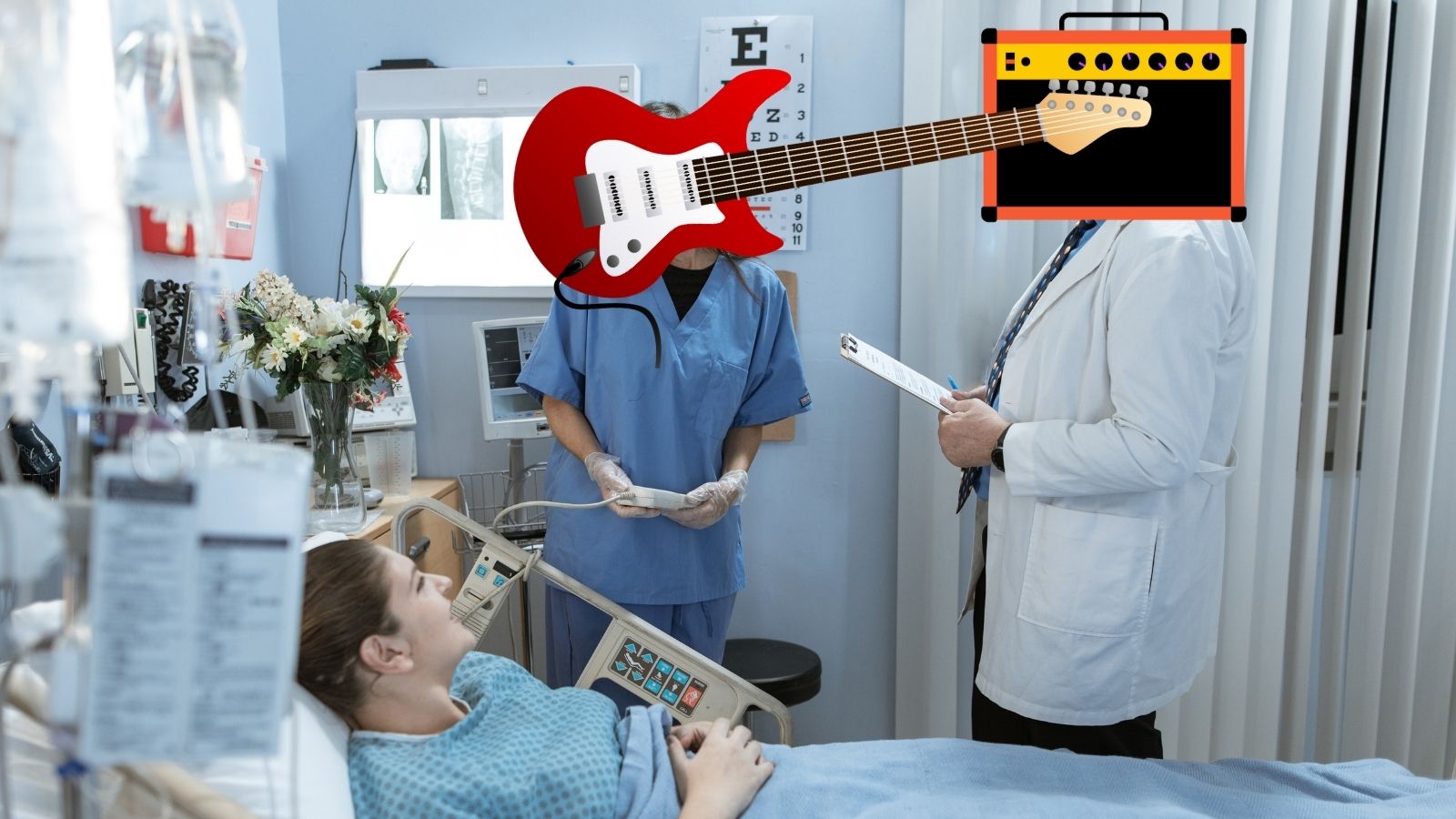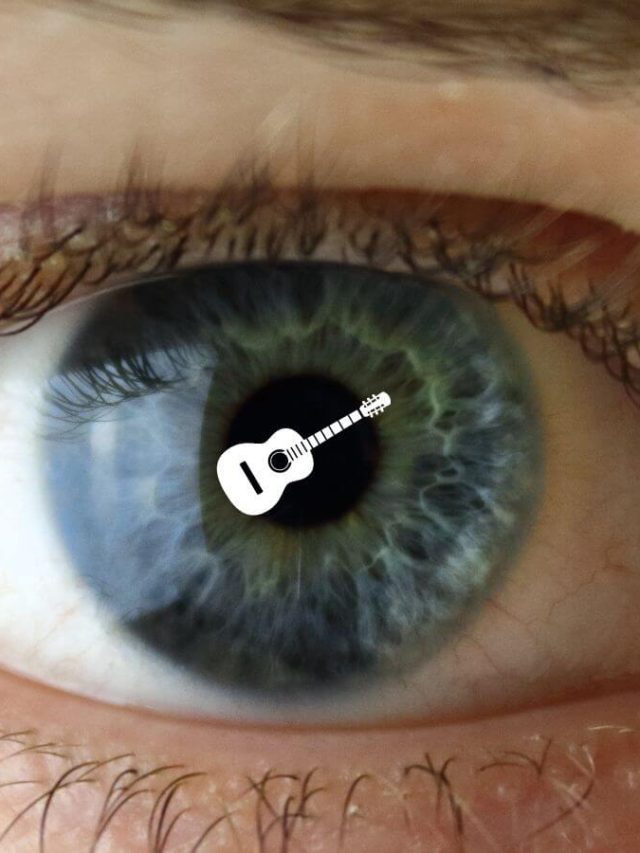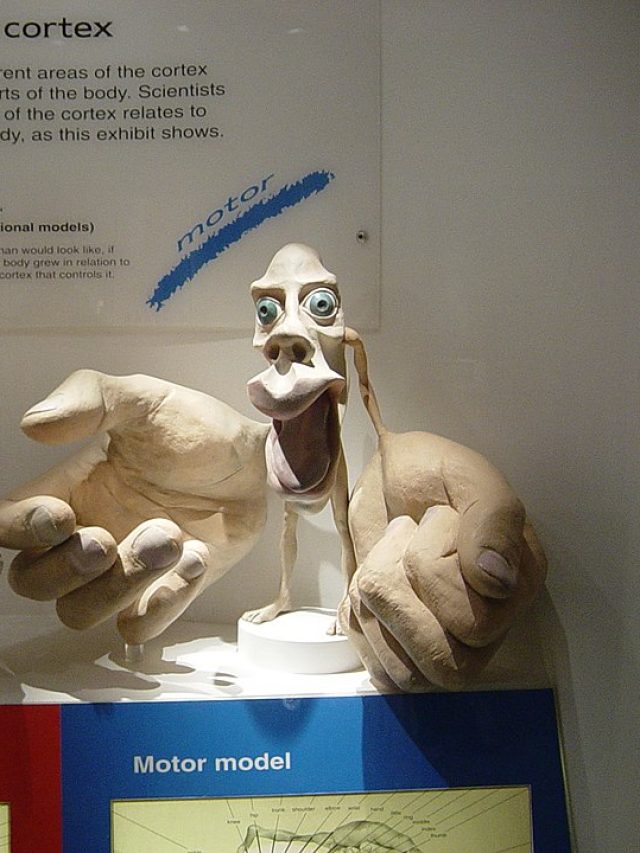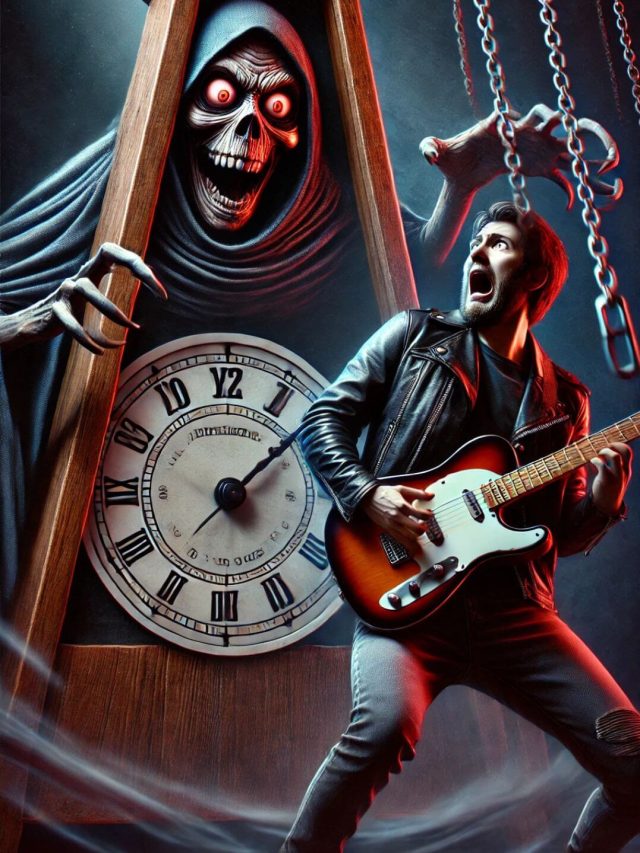Learning the guitar has cognitive benefits because it changes the brain. One of the biggest benefits is the additional neural resources developed through practice – they defend against age-related memory loss and dementia. It also improves fine motor movement. But that’s not it. Playing the guitar is therapeutic and helps manage mental health.
Disclaimer: Guitar practice is not a replacement for medical interventions and a licensed doctor. This article is not medical advice. The cover image is for dramatic representation only.
Chapters
Musical engagement heals, literally
There are 2 opposing research insights[1] to look at that form the link between musical activity and well-being. Research studies have observed that practicing music improves mental health and well-being, but musical work as a professional worsens well-being and mental health. The 2 observations have very different mechanisms.
If you practice music as a hobby guitarist, you are going to experience positive emotions and improved life satisfaction. It is also going to keep your brain engaged in a fun activity and distract you from trauma or other negative emotions. This improves well-being.
If you practice music as a professional guitarist, you now have to consider the practical hurdles such as the high cost of making music, the pressure to earn an audience’s time and money, the stress of uncertainty and competition, the stress of creating musical content non-stop, etc. These are potential stressors and a source of life dissatisfaction, which then worsen mental health and well-being.
So for the therapeutic effects of playing the guitar, we should first look at playing the guitar as a hobby and not work. In some cases, professional playing will improve well-being but that’s a story for another day. When we look at any hobby, the core contribution for wellbeing is how it satisfies your personal needs[2]. From a psychological point of view, these needs are described by the Self-determination theory and include the need for relatedness, need for autonomy and control, and need for competence. Simply put, the musical hobby can help you connect with others (relatedness), feel like you have command over how you spend time and have an activity to do just because you want to (autonomy and control), and you feel like you are making progress in at least one part of your life (competence). Satisfying all 3 needs directly improves wellbeing and over all life satisfaction.
Making music is itself used as a form of therapy[3] in helping people cope with trauma, pain, depression, anxiety, anger, sleeplessness, schizophrenia, addiction, and other related mental health problems. Most of the therapeutic benefits come more from creating music as a hobby or treatment option instead of passively listening. Although passive listening does improve mood and distract from negative thoughts, the real therapeutic effects emerge from hands-on creation. In fact, making music is now considered as a valuable rehabilitation technique[4].
The guitar has become a popular instrument for use in clinical therapy[5] across all age ranges. Important evidence comes from patients of Parkinson’s Disease – a neurological disease where brain cells deteriorate and their communication with each other via dopamine pathways worsens causing tremors and loss of body control. Research[6]shows that group guitar lessons can significantly improve mood and hand dexterity in those with Parkinson’s in just 6 weeks. In another 6 weeks, the guitar benefits start dropping, so researchers suggest ongoing practice, and not one-time interventions, brings out the best improvements.
Those who have suffered from psychological trauma[7], often find expressive arts useful to reduce the traumatic effect of their memories. Playing an instrument (or any expressive art) can successfully re-construct how they process their trauma and externalize it to the point they are not controlled by their trauma.
It’s not just psychological trauma, even those with physical trauma or brain injury can improve their everyday functioning through musical practice because music engages a large part of the brain and improves neural connectivity (which is essentially like regrowing or rewiring the brain). Physical trauma to the brain via accidents or diseases directly affects motor functions like movement, gripping, balance, etc., emotional functions like controlling emotions, and cognitive functioning, including a drop in memory, reasoning, finger control, verbal ability, and attention. Since playing and learning an instrument engages all of those cognitive functions and a significant portion of the body, it helps to rehabilitate damaged parts of the brain[8] because the connection between the mind and body is 2 way. Damage to the brain hampers mental functioning, and mental functioning can promote brain-cell repair and improve neural activity.
Effectively, you can use the guitar as a vehicle for DIY music therapy with at least some benefits like:
- Reduce random intrusive thoughts
- Improve mood
- Help with pain management
- A way to relax and manage emotions/stress
- Create work-life balance
- Improve cognitive health and strengthen memory systems to defend against age-related cognitive decline
- Defend against Alzheimer’s and Dementia
- Create a sense of achievement
- Create a meaningful activity that improves life satisfaction and happiness
It’s a good distraction
Those who have a musical hobby generally have a lower chance of developing crippling anxiety, depression, and psychosis because making music is a creative and physical process that is inherently rewarding and it grounds you in a way that you don’t spiral into negative states. Grounding yourself using your senses is an established mechanism to distract yourself from negative thoughts.
If guitar playing stops you from mentally replaying negative memories or thoughts, those memories will start decaying and lose their emotional impact. Since our attention is limited, the brain will use most of its resources for attending to your guitar.
Spontaneous thoughts, or random intrusive thoughts, generally occur most when the brain is in a habit-like state, where the default mode network (a large brain-wide circuit that processes background information) is active. The DMN is active when attention is not occupied with a demanding activity and then the mind wanders to negative thoughts. So playing the guitar can recapture that freed-up attention and prevent the DMN from spitting out wandering thoughts.
To cope with trauma, one has to cope with recurring memories of a traumatic time and manage an always anxious state of mind and body. Musical training, via distraction, can reduce traumatic flashbacks. If the flashback doesn’t appear as often as before, its neural strength weakens, and that reduces the quality of life impact of those flashbacks. Musical distraction also begins to disconnect the triggers for these flashbacks because now the brain is in a state where less attention goes to those triggers.
It builds new neural tendencies
Another mechanism that is very important in a therapeutic activity is how it rewires the brain[9]. All habits and thought patterns are essentially patterns of neural activity. The brain is plastic and learning a new activity tends to rewire old neural structures and create new structures. This is called neuroplasticity and it has 2 benefits for therapy:
- You build brain reserve – extra neural processing power and fortification acquired through guitar practice, which defends against malfunctioning neurons.
- You build confidence, a source of positive emotions, and a sense of accomplishment – which directly improves mood. And making these new tendencies strong through neuroplasticity, makes the improved mood more robust and resistant to fluctuations.
Making music engages the parasympathetic nervous system
We have 2 systems that put the body under stress or calm.
The sympathetic nervous system triggers when we are stressed. It prepares us for fight and flight with a push in cortisol (the stress hormone) and adrenaline (the high arousal hormone). When we are stressed, the body immediately deactivates its counterpart – the parasympathetic nervous system, which is a system that controls rest and relaxation creating a feeling of safety. Musical activity can hijack the sympathetic nervous system, shut it down, and restart parasympathetic activity.
Through evolutionary contexts like running from danger and perceiving safety, the sympathetic nervous system increases heart rate, tenses up the muscles, and stops digestion or defecation to prepare for the fight or flight response. When we are not under threat, we start its counterpart which reduces cortisol, reduces heart rate, relaxes muscles, and returns the body to homeostasis.
Guitar practice is meditative

Meditation, particularly mindfulness meditation, which is focusing on one activity with full sensory engagement in the present moment is a mental health activity with many benefits such as improved mood, lower stress and anxiety, reduced negative thoughts, and more positive emotions. Practicing the guitar is a deep sensory activity that occupies attention in the present moment, so by definition[10], it is a mindfulness meditation activity. Every hobby practice session is inherently meditative if you are fully engaged because the brain gets a healthy way to engage with its environment.
You get an identity, purpose, and social support
Having a stable identity is important for mental health recovery[11] because it builds your self-concept and self-esteem. It is also important for building social health, and for that, we need a channel to connect with others. Our need for belonging is very powerful and being a guitarist can easily offer that belongingness. This creates a potential social support for difficult times and counters loneliness.
Many musicians and other hobbyists stand by the fact that their instrument (or craft) gives them purpose and meaning, and improves life satisfaction.[12] It draws a boundary around everyday activities and makes musical engagement (called musicking) a place of positive emotions, connection to others, and a sense of achievement, and it increases control over time spent when life’s uncertainties remove that control.
While most of these aren’t specific to guitar and generalize to most instruments and hobbies, playing guitar is quite an accessible way to meaningfully engage with people and keep the brain healthy.
References
[2]: https://psycnet.apa.org/record/2019-27730-001
[3]: https://www.tandfonline.com/doi/full/10.3109/10673229.2011.549769?src=recsys
[4]: https://wires.onlinelibrary.wiley.com/doi/abs/10.1002/wcs.1237
[5]: https://www.sciencedirect.com/science/article/abs/pii/S0197455606000827
[6]: https://www.hindawi.com/journals/pd/2022/1061045/
[7]: https://www.tandfonline.com/doi/abs/10.1080/08322473.2011.11415547
[8]: https://www.cochranelibrary.com/cdsr/doi/10.1002/14651858.CD006787.pub2/abstract
[9]: https://www.tandfonline.com/doi/abs/10.1080/08098130409478095
[10]: https://www.ingentaconnect.com/content/scimed/mppa/2015/00000030/00000002/art00003
[11]: https://www.sciencedirect.com/science/article/abs/pii/S0197455614001099
[12]: https://citeseerx.ist.psu.edu/document?repid=rep1&type=pdf&doi=fc457d0c3e1fd086b6dfb690b979c7070f5aa90b









